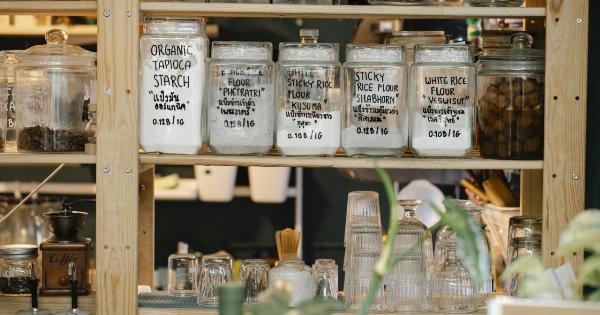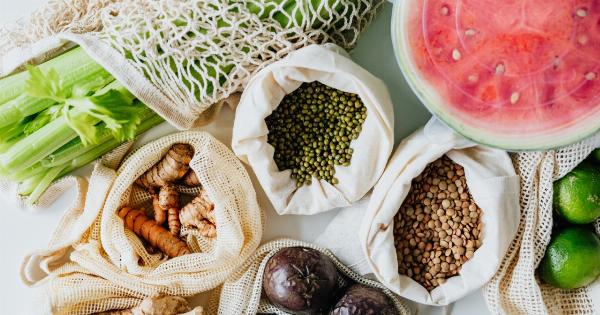Keeping food fresh for a long time is a fundamental concern in households, restaurants, and other food businesses.
Food freshness is not just important to avoid the risk of food poisoning and other illnesses, but it also helps to maintain the taste, texture, and nutritional value of the food.
Many factors can affect the freshness of food, including temperature, humidity, air, and light. Therefore, it is essential to know how to store different types of food correctly to keep them fresh for longer.
1. Store fruits and vegetables in the refrigerator
Fruits and vegetables are essential components of a healthy diet, and they are also quite perishable. Therefore, it is crucial to store them properly to keep them fresh for longer.
Most fruits and vegetables should be stored in the refrigerator crisper drawer, which is designed to have higher humidity levels and keep the produce fresh longer.
However, some fruits and vegetables, such as bananas, pineapples, tomatoes, and avocados, should not be refrigerated as they do not ripen well in cold temperatures.
2. Keep meat and fish in the coldest part of the refrigerator
Meat and fish are highly perishable and require specific storage conditions to keep them fresh.
It is crucial to keep raw meat and fish in the coldest part of the refrigerator, which is usually the back of the bottom shelf, where the temperature is the lowest.
It is also essential to wrap the meat and fish tightly in plastic wrap or foil or place them in airtight containers to prevent contamination and odors from other foods in the refrigerator.
3. Use proper storage containers
The right storage containers can help keep food fresh for longer. For example, glass containers are ideal for storing leftover food because they do not leach chemicals or odors into the food, they are easy to clean, and they are durable.
Glass containers are also suitable for storing dry foods like rice, beans, and pasta.
Plastic containers are also an option, but they should be made of food-grade plastic and labeled “microwave-safe” and “dishwasher-safe.” It is also best to avoid plastic containers that have been scratched or stained, as they can harbor bacteria and odors.
4. Freeze food in small portions
Freezing is an excellent way to preserve food for an extended period. However, it is crucial to freeze food in small portions to make it easier to thaw and prevent spoilage.
When freezing meat, fish, or poultry, it is best to wrap it tightly in freezer wrap, freezer paper, or heavy-duty aluminum foil to prevent freezer burn.
It is also essential to label the packages with the date of freezing to keep track of the food’s freshness.
5. Keep the pantry organized and clean
The pantry is a convenient and accessible storage area for dry goods like cereals, bread, dried fruits, nuts, and snacks. However, it is essential to keep the pantry organized and clean to prevent contamination and spoilage.
It is best to store dry goods in airtight containers or plastic bags to keep them fresh longer and prevent insects and rodents from accessing them.
6. Use airtight bags to store cheese and bread
Cheese and bread are staples in many households, but they can also spoil quickly if not stored correctly. It is best to store cheese in airtight bags or containers in the refrigerator to prevent moisture and mold growth.
Bread should also be stored in airtight bags or containers to prevent it from becoming stale and dry. It is also essential to keep bread away from direct sunlight and heat sources.
7. Keep herbs and spices in a cool, dark place
Herbs and spices are essential ingredients in many recipes, but they can lose their flavor and potency if not stored correctly.
It is crucial to keep herbs and spices in a cool, dark place, away from sunlight and heat sources. It is also best to store them in airtight containers to prevent moisture and humidity from affecting their flavor.
8. Keep beverages in the refrigerator
Beverages like milk, juice, and soda should be stored in the refrigerator to keep them fresh for longer.
When storing milk, it is best to keep it on the middle or bottom shelf of the refrigerator, where the temperature is the most consistent.
Juice and soda should be stored in the main section of the refrigerator, away from the door, where the temperature fluctuates the most.
9. Don’t overload the refrigerator or freezer
It is essential not to overload the refrigerator or freezer to maintain proper airflow and temperature. When the refrigerator or freezer is overloaded, it can affect the appliance’s performance and cause food to spoil quickly.
It is best to keep the refrigerator and freezer organized, with enough space between foods to allow for proper airflow and temperature regulation.
10. Check the expiration date
It is essential to check the expiration date on all food products before storing or consuming them. Food products that are past their expiration date should be discarded as they can cause food poisoning and other illnesses.
It is also essential to inspect fresh produce, meat, and fish for any signs of spoilage, such as discoloration, bad odor, or sliminess. If the food appears spoiled, it should be discarded immediately.
Conclusion
Keeping food fresh for a long time is essential for maintaining its nutritional value, taste, and texture. By following these tips, you can help ensure that your food stays fresh and safe to eat for as long as possible.




























